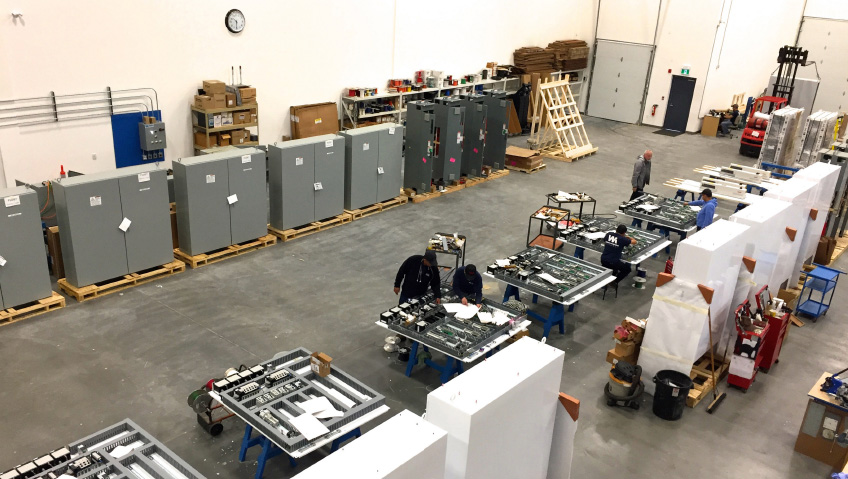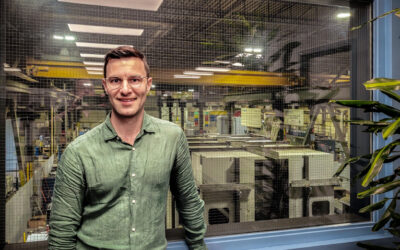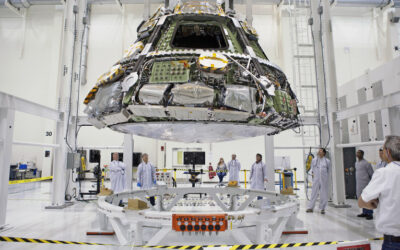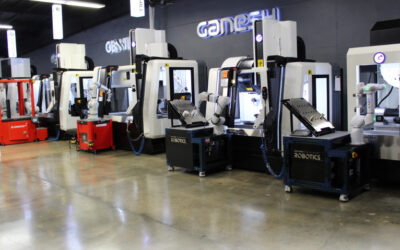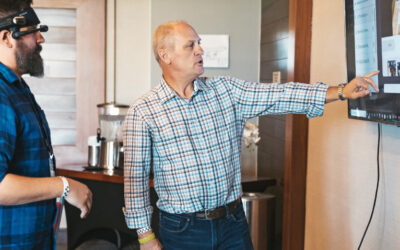Western Integrated of Burnaby, British Columbia, marked its 40th anniversary last year, and is firmly in growth mode as it looks to the future. The company offers electrical and automation system design, engineering, building, installation, and commissioning for a diverse range of clients.
The company is “unique in that we have both an electrical and a systems group in one company,” notes Sales and Business Development Manager Graeme Shepherd. Having these services under one roof means the team is in a position to offer complete new projects and upgrades to existing facilities. Shepherd cites a recent job where Western was contracted to provide electrical upgrades at a local recycling plant.
“Once our electrical team got onsite, they realized pretty quickly there was a lot of automation that needed to be upgraded as well. We called our automation group and sent our systems team in. We went onsite, did an evaluation of what was needed, and then made a proposal that turned into a complete upgrade package for the customer,” he recalls.
The company’s turnkey solutions—which can incorporate automation systems, from small PLC to large DCS systems, motor controls and drives, dynamic braking, railway welding controls, and panels—are designed and assembled at a 20,000-square-foot facility that also houses the head office. While the welding control panels are designed in-house, other products are purchased from various original equipment manufacturers (OEMs) and integrated into solutions for customers.
Western’s services range from installation and construction to overload and shift coverage, local standards compliance, and thermography. The company has also registered as a contractor with Power Smart Alliance, an energy efficiency program run by B.C. Hydro, and has started performing electric vehicle charging station installations. Forestry, mining, machine safeguarding, municipalities, airports, manufacturing, and materials handling are the main sectors served.
Western is “an engineering company as well. We have our permit to practise here in B.C. We can engineer systems for the end customer. We’re moving more into that kind of realm, where we’re looking for projects where we can get in early, help design, help engineer, then move [the project] through our system,” Shepherd explains.
The company backs its products and services with committed customer support and maintains a call service that is accessible at any time to clients facing electrical issues. The technician on duty can sometimes even prescribe a fix over the phone. When the problem is more complicated, Western will dispatch personnel to the customer’s site to resolve the issue.
Over the decades, the team has handled a number of high-profile projects. It took on an assignment for a food and dairy handling facility in Port Coquitlam, B.C., for example. Among other tasks, Western’s technicians installed a new Rockwell programmable logic controller system to control boilers and the HVAC network in the plant, and exhaust/supply fan controls to regulate room pressure, temperature, and humidity.
Another key project involved a recycling facility in Delta, B.C., where Western designed and installed a control system at an organic composting facility that incorporated multiple stations that sent data back to a central site. It has also provided technological help at a sawmill. This job entailed installing a PowerFlex755 – AC Drive and an RPM-AC low inertia motor to increase plant efficiency by boosting the speed at which logs were processed and reducing the gap between logs.
As an example of a large project, Western Integrated provided the entire electrical MCC lineup consisting of 28 lines averaging 12 sections per line that included over 300 motors connected to VFDs and Soft Starts. “Our technicians were instrumental in a successful start-up and commissioning, which drew significant praise from the owners.”
The company also performs “a lot of municipal contracts, doing electrical maintenance contracts for municipalities. That could be everything from street light changes to lighting upgrades, system upgrades, or generator upgrades to municipal halls, fire halls, RCMP detachments,” Shepherd says.
Always looking to the future, the firm is looking to expand into Eastern Canada and is contemplating a move into the Southeastern United States. “An abundance of our customers have bought mills down there,” Shepherd explains. “We’re still doing a lot of work out of the Burnaby location and shipping it to the Southeast, and we have our service techs go down and commission the products.”
Western Integrated prides itself on keeping quality high and has multiple industry certifications to show for its efforts. These include CSA/UL approval, ISNetworld certification, and ComplyWorks compliance. A quality assurance manual is available to everyone in the company, regular quality checks are performed at the plant, and quality tests are a standard part of the manufacturing process. Solutions are put through a final compliance test before installation. Any deficiencies found at any point during the manufacturing process are immediately brought to the attention of a supervisor and the company will perform a root cause analysis to determine what was behind the deficiency to prevent it from happening again.
Given that it works with potentially dangerous electrical equipment, the company is as focused on safety as it is on quality. “Safety is key for us. Our goal is to have zero safety incidents in the workplace,” states Shepherd.
Toolbox meetings are held before any project commences so staff can assess the work at hand, job site conditions, and any possible risks, and then figure out ways to mitigate them. In addition to regular meetings and a comprehensive safety manual, “Everybody in the company has the right to refuse work if it’s an unsafe condition. If they come across an unsafe condition, they’re fully entitled to stop the work and report it.”
Founded in 1982, the company only did electrical work at first, Shepherd recalls. 14 years after the launch, a systems group was created as Western began to expand its services. Growth continued with the acquisition of a firm called Wespac Automation in 2016.
Since 1996, the company has been an official Rockwell Automation solution partner for engineered drive systems. While it acquires most of these systems from Rockwell, Western also purchases equipment and technology from Mitsubishi, ABB, and Schneider Electric, among other major suppliers. While Western serves a wide range of clientele today, forestry remains its core sector.
While it attends trade shows, much of the company’s business is generated through word-of-mouth referrals and public knowledge of the company’s longevity and reputation. “Especially in forestry, we work with a lot of the larger OEMs as well as the end users,” Shepherd says. “They’re well aware of our capabilities, so repeat business is a big part [of what we do]. In the forest industry, like every other industry, people talk to one another.”
Of course, Western Integrated also had to deal with the COVID pandemic. In response to the virus, some staff worked remotely at home while hand sanitizer, cubicle barriers, split shifts, and full clean-downs between shifts were introduced at the plant and office. Since it was deemed essential, the company did not have to shut down.
Still affecting the firm in the form of supply chain woes, the pandemic caused massive manufacturing delays and bottlenecks. In addition to making customers fully aware of the situation, the company encourages clients “to get us involved early in the project. The earlier we’re involved, the more successful we’ve become, because we can help them mitigate some of the issues,” states Shepherd.
Not counting COVID, he says “getting qualified people,” is the company’s biggest challenge. The company currently has 75 employees, and did not have to lay anyone off during the COVID crisis. It has high standards for potential new hires. Experience with automation drives and controls helps, although, “on the electrical side, it’s a little bit different because we do employ apprentices, as well as supporting local colleges and universities by hiring interns and coop students,” says Shepherd.
Western Integrated sponsors a team of apprentices who receive Red Seal certification when they finish their training and education. The Red Seal program recognizes tradespeople nationwide who have “demonstrated the knowledge required for the national standard in that trade,” according to the Red Seal website.
For all its employees, Western offers a culture of transparency and support. “We have a very vibrant culture here… the work environment, the open-door policy that the entire company has, right from our General Manager through the leadership team. There are five of us on the leadership team: our GM, myself, our Office Manager, our Engineer Manager, and our Controller. And from the GM down, all of us have open-door policies. We walk the floor every day,” says Shepherd.
He offers an upbeat forecast for the future: “Our goal is to double our current size five years from now; to support our company plan we will grow organically and inorganically.”

